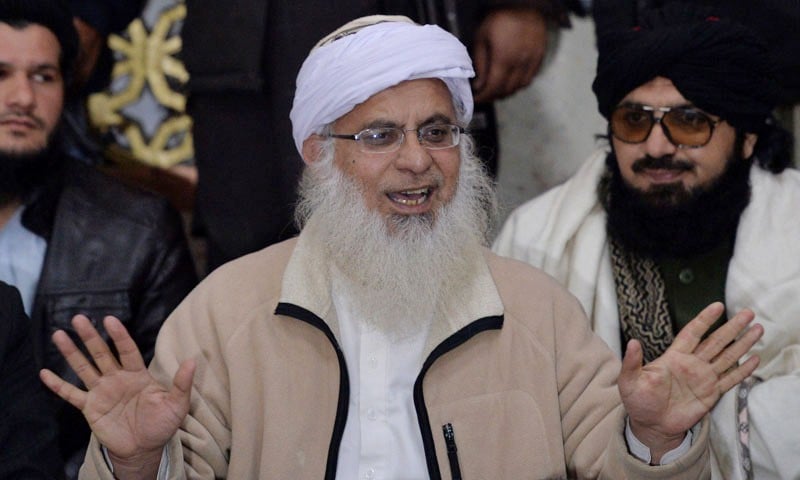
In the heart of Islamabad, Lal Masjid leadership continue to pursue its mission to enforce their brand of sharia in Pakistan

Islamabad’s Lal Masjid has been in the spotlight for the past four decades. The mosque and its two seminaries -- Jamia Faridia and Jamia Hafsa -- run by the Deoband family of Qari Abdullah, a cleric who spent several years in southern Punjab seminaries, has a history of peace and conflict with the state, mainly because of supporting the Afghan jihad and its extreme approach towards Islamic militancy.
Because of its role in the Afghan jihad, Qari Abdullah and military dictator General Ziaul Haq formed good relations.
Abdullah, originally from a small village in Rojhan Jamali, in district Rajanpur of southern Punjab, went to two seminaries in Rahim Yar Khan and Multan in the 1950s. He later became a disciple of Yousaf Banori in a famous Deoband seminary in Karachi. After the completion of his studies in the seminary, he delivered sermons and led prayers in a couple of mosques in Karachi on the direction of Yousaf Banori.
Later, when Islamabad was announced as the new capital of Pakistan, Abdullah was directed to move to Islamabad. He moved to the capital several months before it was officially shifted from Karachi. In 1965, he managed to get a piece of government land to set up Lal Masjid, which became fully functional by 1966.
The mosque came into the limelight for nurturing and supporting Afghan jihadis. Ziaul Haq allotted two plots to Qari Abdullah, at separate times, on which he set up two seminaries, one for boys and one for girls. The number of students in those seminaries was in thousands in late 1980s and 1990s. The leadership of the mosque was known for its links with al Qaeda leadership, including Osama Bin Laden.
Read also: From Sipah to ASWJ
The seminaries are still well connected across the country, especially in southern Punjab. A large number of students of the two seminaries mostly come from very poor backgrounds and under-developed areas in Punjab and other provinces.
The Lal Masjid came into conflict with the government and the establishment after the Afghan jihad was over. Prime Minister Benazir Bhutto, in her first tenure, tried to remove Abdullah from the position of imam (prayer leader) of this originally government-owned and administered mosque. Later, following Pervez Musharraf’s take-over, the situation worsened.
Qari Abdullah was killed at the doorstep of the mosque in 1998. He was succeeded by his two sons, Abdul Aziz, the present prayer leader, and Abdul Rasheed, who was killed by the Pakistan Army in Operation Silence in 2007.
It was in 2004 when the mosque administration sent shock waves across the country by issuing a fatwa (decree), saying nobody should offer funeral prayers for army soldiers dying in the war on terror in Wana, South Waziristan. The decree was signed by more than 500 clerics. The establishment approached Maulana Abdul Aziz to withdraw the decree but he refused.
The mosque’s ‘female brigade’ started forcefully attempting to close Chinese massage parlours, and other activities they deemed un-Islamic. This eventually led to Operation Silence by the state in 2007.
A couple of years ago, Maulana Abdul Aziz who was stopped from delivering sermon after 2007, got acquitted in most of the cases lodged by the government. He attempted to start his fiery speeches again but the civil society members protested. The mosque and seminaries still have thousands of students.
The mosque leadership says its mission will continue till the enforcement of their brand of sharia in Pakistan.